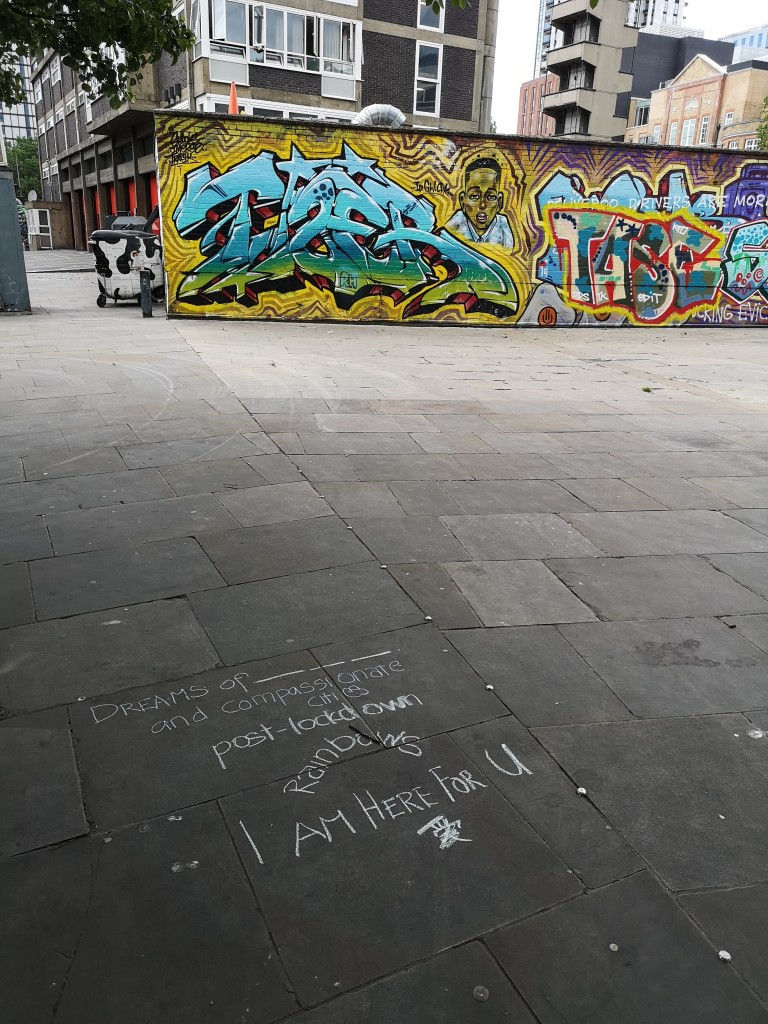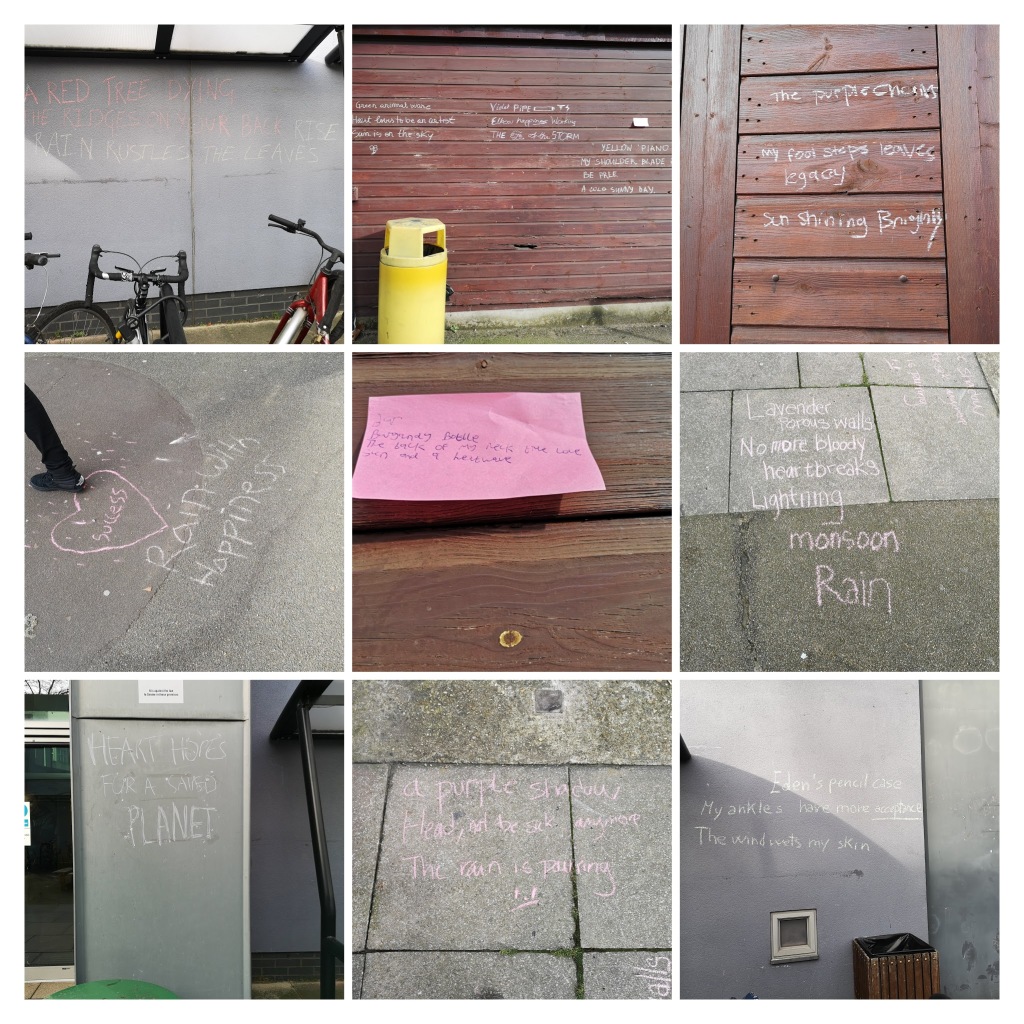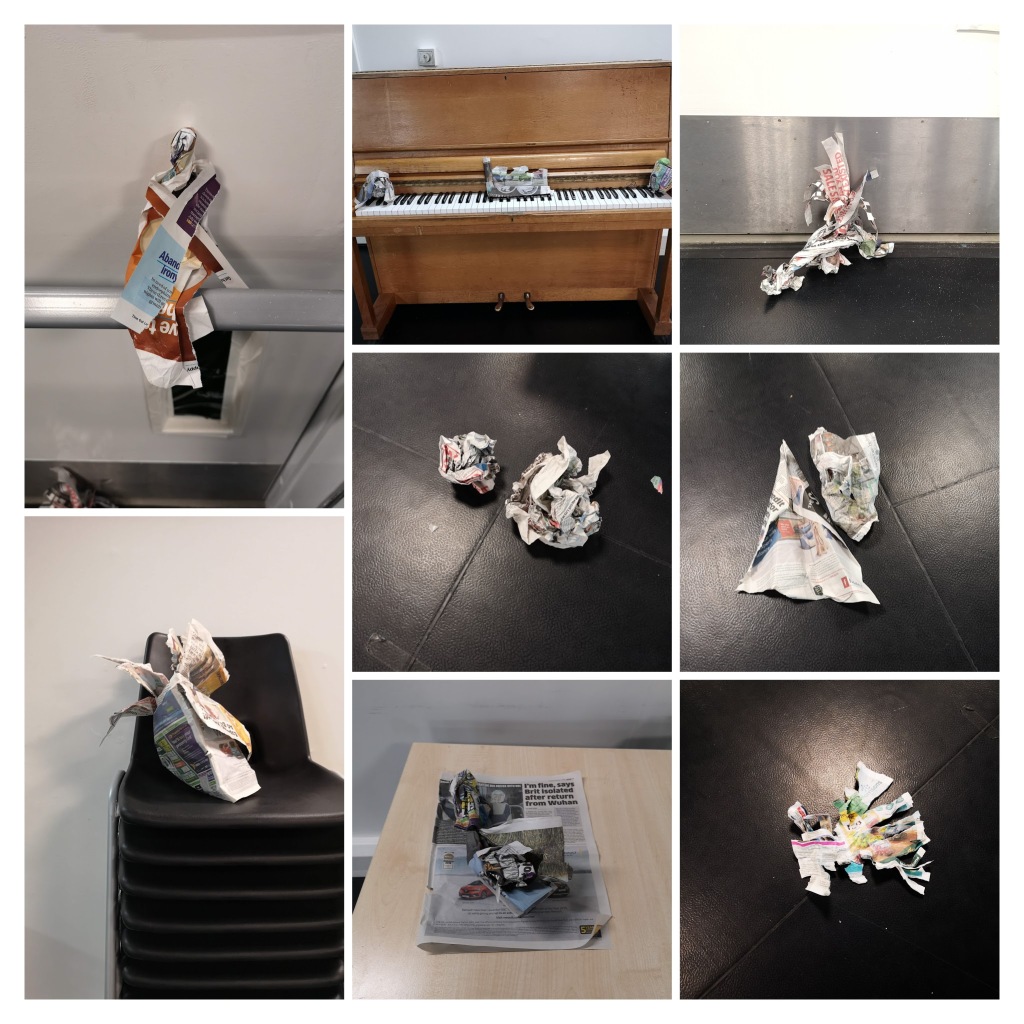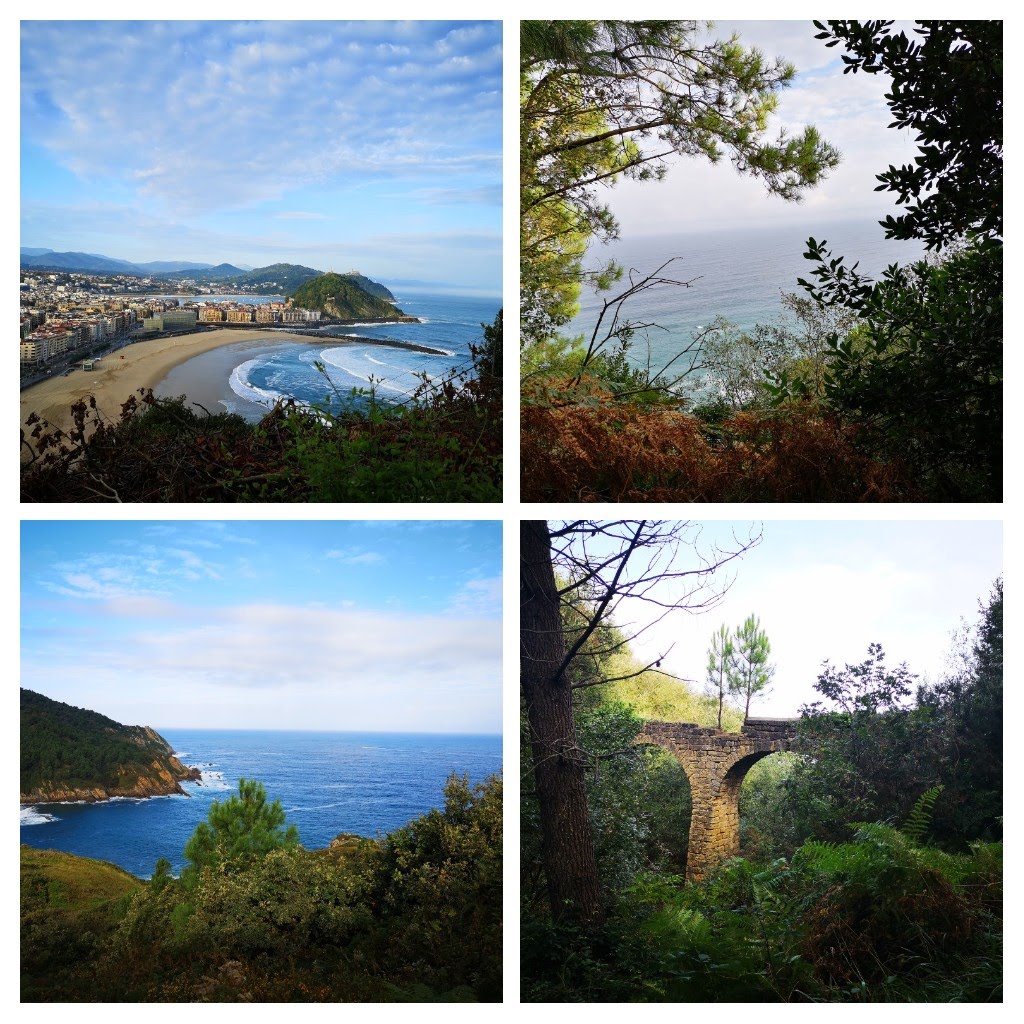
For Dad: All of a sudden, 20 years have passed. The tears still fall even though they shouldn’t. The white foam churns and covers most of the moody grey-blue sea as the wind cries. Like the water swirled above me … Continue reading


For Dad: All of a sudden, 20 years have passed. The tears still fall even though they shouldn’t. The white foam churns and covers most of the moody grey-blue sea as the wind cries. Like the water swirled above me … Continue reading
Panel on ECR Precarity – a virtual bubble bath with Dr Simon Dodi, Dr Tia-Monique Uzor and Dr Adelina Ong. 24 June 2022, 4.15 – 5.15pm, on Zoom

Borrowing from Isabell Lorey, ‘The common is nothing we can come back to’ (Lorey in Puar et al. 2012: 172). Precarity is not a common state of being that we can call upon for solidarity.
As soon as we finish the PhD it begins to tear us apart as we begin to view each other as competitors.
I am also your TAPRA ECR rep…so one ECR told me they had begun to resent people who got jobs for positions they never even applied for.
In the end, the neoliberal university and academic publishing industry extracts value from us at ever lower rates of remuneration, with ever-increasing expectations. Most of the time we are expected to do a lot of the work for free (as academic contributions to the community). University tuition fees increase but VLs (Visiting Lecturers on zero hour contracts) don’t get paid more. Academic publishers sell the books at hundreds of pounds for a copy. Did you know that during the pandemic, the 2nd edition of the Applied Theatre Reader was sold at
Single user – £480.00 this means only one person can access at any one time
Three user – £600.00 this means only three people can access at any one time
No more. Let’s build a new world together
Before the pandemic, I was focused on applying for postdocs. In the 4 years since graduating in 2018, I’ve applied for 6 postdocs and I have been rejected for all of them. My school’s grant advisor had said I’ve applied for everything that I’m eligible for as an international ECR and there is nothing else that I can apply for. But I’ve never ever been successful with scholarship applications and I self-funded my MA (using my savings after working full-time for 8 years) and then my PhD. At one point, I ate chips left behind by a stranger for my conference dinner…But being rejected for funding towards education/career opportunities is nothing new.
I’ve always been sceptical about full time academia but I decided to apply for this full-time fixed term position in the early days of the pandemic because I felt it would be the best way to support young people here given my skills. A colleague was going on research leave and I was familiar with the work, so I applied and got the job in July 2020.
The so-called New Normal of ECR precarity is really the Old Normal on steroids:
I understand that many people want a return to normal. Many have applied for jobs and postdocs and are still getting rejections. If full-time academia is the path that will connect what you love with what you’re good at, what the world needs and what you can get paid for: then don’t stop, keep applying. But if we accept that this precarity is the old normal for full time academia (and is becoming increasingly more so) then why should I be afraid of the precarity of being an independent researcher, trying to set-up my own social enterprise?
There is no going back to normal for me
There are exciting developments in online learning within web 3.0 n the metaverse that I’m excited about because it opens up possibilities for independent researchers like me. Here are some articles if you’re interested:
Hamburg, S. (2022) A Guide to DeSci, the Latest Web3 Movement, Future, https://future.com/what-is-decentralized-science-aka-desci/ (Accessed: 22 June 2022).
Schecter, B. (2021) The Future of Work is Not Corporate — It’s DAOs and Crypto Networks, Future, https://future.com/the-future-of-work-daos-crypto-networks/ (Accessed: 22 June 2022).
I’m going to end with this quote from Arundhati Roy:
Nothing could be worse than a return to normality. Historically, pandemics have forced humans to break with the past and imagine their world anew. This one is no different. It is a portal, a gateway between one world and the next. We can choose to walk through it, dragging the carcasses of our prejudice and hatred, our avarice, our data banks and dead ideas, our dead rivers and smoky skies behind us. Or we can walk through lightly, with little luggage, ready to imagine another world. And ready to fight for it. (Roy 2020)
References:
Hamburg, S. (2022) A Guide to DeSci, the Latest Web3 Movement, Future, https://future.com/what-is-decentralized-science-aka-desci/ (Accessed: 22 June 2022).
Puar, J. et al. (2012) ‘Precarity Talk: A Virtual Roundtable with Lauren Berlant, Judith Butler, Bojana Cvejić, Isabell Lorey, Jasbir Puar, and Ana Vujanović’, TDR/The Drama Review, 56(4), pp. 163–177.
Roy, A. (2020) ‘The pandemic is a portal’, The Financial Times, https://www.ft.com/content/10d8f5e8-74eb-11ea-95fe-fcd274e920ca (Accessed 22.06.22)
Schecter, B. (2021) The Future of Work is Not Corporate — It’s DAOs and Crypto Networks, Future, https://future.com/the-future-of-work-daos-crypto-networks/ (Accessed: 22 June 2022).
14.04.21
Someone once told me that grief is the flipside of love.
I know this to be true.
But recently I sense your presence
in the weathered bark of trees that have survived the winter.
in situations that remind me of conversations we’ve had.
in the green tips of branches that wait for spring.
reminding me that enduring is the quiet capacity
to begin again.
29.09.20
This is an excerpt of my keynote/response to Chang Gao’s Public Intimacies and Supernormal Stimuli and Simon Dodi’s Both/And at Collisions 2020:
‘In this pandemic, I have been thinking about how distance has become a form of care.
I am not only 7 hours away from the pink clouds of daylight that signal a new day in Singapore, where my family and friends are. I am 13 hours and 14 days in quarantine too late for a family funeral.
Hugs that once brought comfort are now experienced as unwanted intimacy.
Touch can be such deadly self-gratification in this pandemic where distance is appreciated as consideration.
Food is no longer synonymous with reunions but perhaps it is warmth in-lieu of that which cannot be conveyed in person. I cannot be there for funerals in person, so I send curry puffs instead.
Beyond the oceans that separate us, a rainbow lights up the tears and worries that fill the sky between us. In this pandemic, distance is not a void or absence – it is filled with care.’
At the end, I asked people to think about the support they would like to receive and to create an abstract gesture of support. And then to make one small adjustment so that our gestures connect across the screens.
This is a part of the picture we made:

05.07.20
Chalk graffiti inspired by conversations with students about their hopes for place and words of comfort for those who have lost loved ones.

05.02.20 Thinking about the climate crisis and all that we have already lost.

15.10.19 Thinking about space, place and placemaking body-weather hope poems for the year ahead. with the new MA Applied Theatre students @CSSD


24.06.20 Mambo Jambo sculptures for SDEA Home Remedies.

12.05.20 Low cost cosplay (with the biggest plastic bowl we could find at home) as Earth Engineers from The Wandering Earth (by Liu Cixin). I used a process drama format, with The Wandering Earth as the basis for a lesson about online research methods and methodologies.

We also recreated places that we would like future generations to recreate on the surface of the Earth, when people can finally live safely on the surface of the Earth again. In The Wandering Earth, the Earth’s surface has become frozen and we have all had to live underground. The following photos are a tongue-in-cheek recreation of Table Mountain, in Cape Town, South Africa.

09.04.20 Adapting Boal. This is part of an online video I’m creating for students. I’m exploring ways of adapting Augusto Boal’s Theatre of Oppression techniques to the lockdown. Here, I’m sculpting my abstract shape of fear (instead of oppression) with furniture, but one could also use food, or piles of clothes, or anything that one might find lying around the house (instead of using another person). Applied theatre practitioners out there – share pictures of how you’re adapting applied theatre techniques to the lockdown situation. Would love to see you having fun with it too!
Top: Ideal image / Bottom left: Actual image / Bottom right: Transition image
03.04.20 A peek of practice to come…

06.02.20 This is an excerpt of a monologue written by one of my participants at a cosplay-inspired workshop I facilitated on Friday where we all played different characters inspired by The Endless (by Neil Gaiman):
‘I am a fisherman lost afloat in a sea of dreams…I do not sleep because I take these rainbow fishes and give them to the hungry in the market…I weep so many tears that could fill the ocean because people are being sold polluted delusions in black markets that advertise nightmares as cheap fantasies. Everyday, on my boat, I find dreams choked by war and lies and hate. But I row on, because each dream is hope, and hope lets me live’. (Dream 2020)

04.02.20 The collage features sculptures made by my students in response to an exercise about place and our hopes for place. We ‘adopted’ each others sculptures for the session and made art du deplacement-inspired movement scenes with them in stairways and corridors around the school. Then we left a little note of encouragement under the sculpture we had adopted.
Underneath my tattered newspaper octopus trapped in wires, was a letter from one of my students which read:
‘This artwork can be interpreted in many ways…loads of stories can be made from it. One thing that stood out to me was that the arms could represent hardship in your life and that’s a brave thing to share’

06.02.19 The note below the lotus I had made said:
To the Artist:
I have never been able to fold lotus flowers. So well done. I mean, it’s a bit messy but perhaps that is really rather fitting. Beauty comes in infinite and arguably wildly subjective forms. I am sure you, yourself, know this. Keep making, keep creating, don’t concern yourself with other people’s subjective perceptions of your work.
With compassion

19.10.19
Playing in the company of gods. climbing almost spongy, sturdy roots, not branches. Whispering healing wishes as if these could heal you.What remains of your trunk begins beyond reach.A reminder of ‘the kinds of obdurate temporalities that desisting bodies perform’ (Baraitser 2017: 50)

An enchanted forest, dark shadows cast over the ground, beckoning weary travellers to attend the conference of stones. Stale bread and a small piece of cheese is passed round.There is no hope for restoration, one can only ease the endurance of suffering‘It takes time to fold time’ (Baraitser 2017: 47). Memories of childhood folded into memories of maintenance.

 The start of term has been so busy…it’s taken me more than two weeks to properly reflect on turning 40.
The start of term has been so busy…it’s taken me more than two weeks to properly reflect on turning 40.
each decade feels like an appropriate time to take a step back from all that I am comfortable with,
all that I am too invested in,
all that has become part of how I define myself
and begin, again.
turning 40 began with
three hours of being surrounded by towering trees
that have quietly endured many more seasons than I have,
the knowledge of self that I hold on to from a mere four decades
must seem quite laughable to them.
these photos (and Facebook’s algorithms)
tend to privilege the spectacular,
so I want to begin by attending to that which I did not see.
a stream I hear but cannot find, flows close by.
all I see are two saplings standing on the ruins of an ancient aqueduct,
nonchalantly defying accepted wisdoms for growth.
chestnuts are lavishly strewn all over the path
but not a squirrel in sight.
birds call to one another but remain hidden
along the Camino de Santiago.
the waves crash fiercely onto the beach,
cradled by the gentle, lush green cliffs
tiny, white flowers play in the shade.
gnarled roots embedded in the dirt path.
footsteps muffled by brown, grass-thin leaves
that blanket the path.
two black slugs sleep curled up, side by side under a log,
cooled by tiny, lime green, propeller-shaped leaves.
all these encounters with the more-than human,
seen and unseen.
how much of this beauty will survive the turn of the next decade?
‘朝菌不知晦朔,
‘The mushroom of a morning cannot comprehend
the beginning and end of a month;
蟪蛄不知春秋’
the cicada will not live to experience
spring and autumn’
(‘Wandering at Ease’, The Zhuangzi).